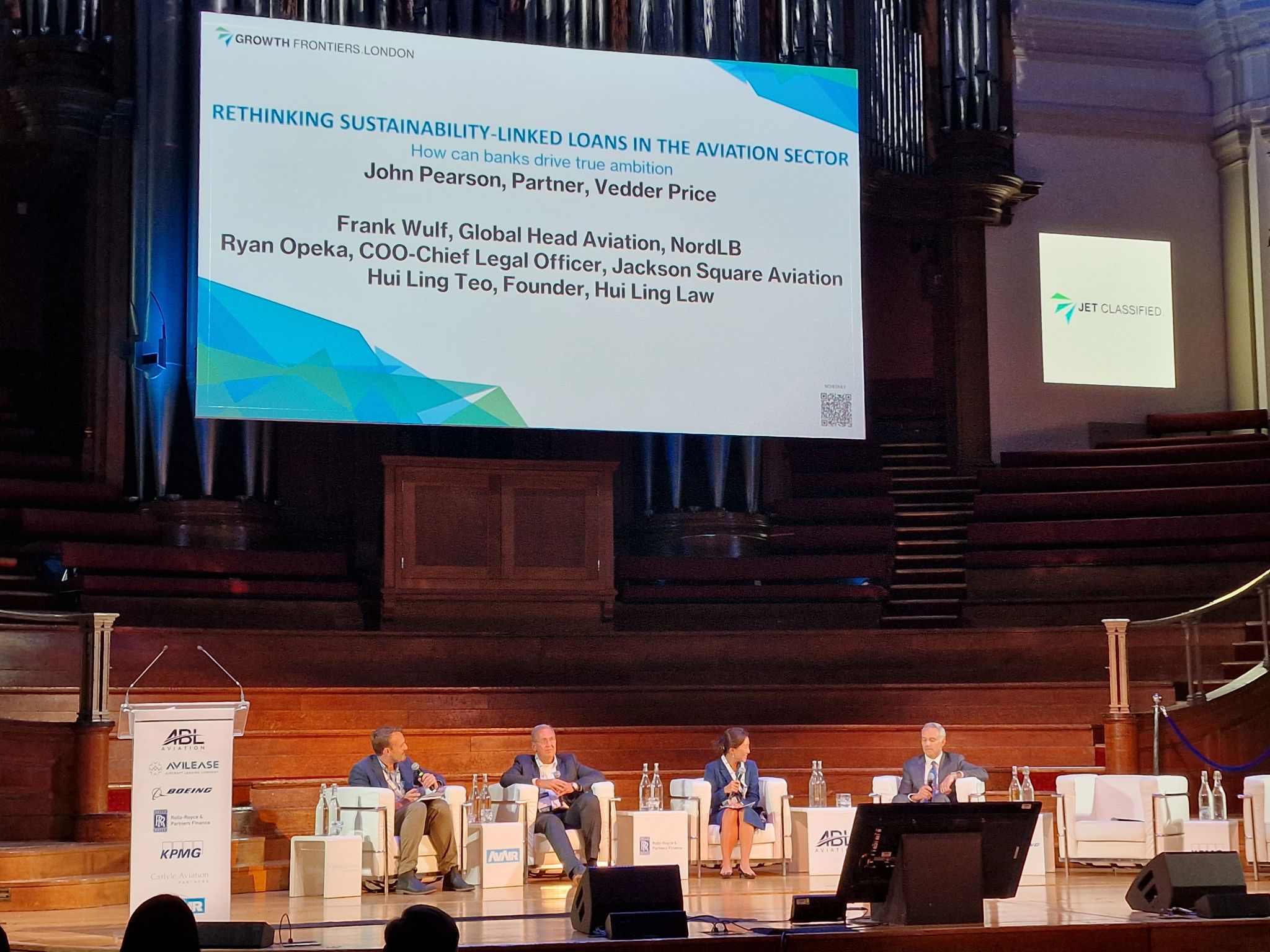Panellists discussing sustainability linked loans at Airline Economics’ Growth Frontiers London 2024 said low cost carriers will be heavily impacted by incoming sustainability measures.
Mandates such as emissions reductions and regulations, as well as sustainable aviation fuel (SAF) will weigh heavily on these carriers.
One panellist said creditors should “open up its scope” to include other functional items such as how the pilot operates the aircraft, what kind of policies are implemented, engine taxi, or software implementations to increase efficiency or trade-off.
Panellists also noted that SAF funding has proven difficult – particularly in Asia with not enough feedstock and bad press in the region. They called for a more standardised SAF procedures to further protect the industry.
Panellists described a method called ‘blended financing’ as a potential solution for SAF infrastructure. “It is essentially different categories of risk that is split up into higher risk for more risk friendly private credit funds… and then you have commercial banks come in and provide the usual commercial lending and risk appetite,” said one panellist. “That has been quite helpful in implementing new technologies and renewable energy projects and infrastructure.”
The speaker also discussed that sustainability linked loans could perhaps become ‘business as usual’ in the near future. They shared positivity towards sustainability financing, with “things moving in the right direction”.
The rethinking sustainability-linked loans in the aviation sector panel was moderated by Vedder Price partner John Pearson. Speakers included NordLB global head aviation Frank Wulf, Jackson Square Aviation COO-chief legal officer Ryan Opeka, and Hui Ling Law founder Hui Ling Teo.

